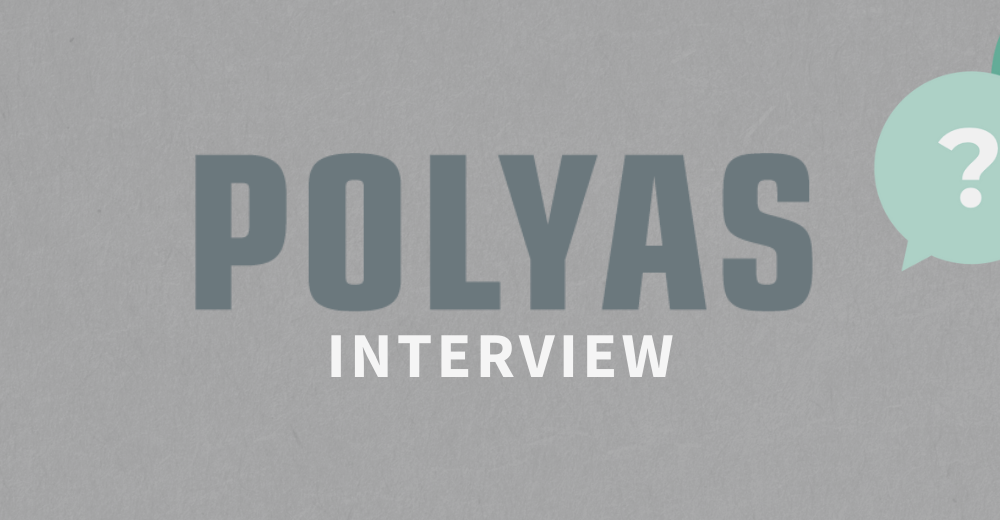
The Diocese of Freiburg had started planning their 2020 online election of parish councils long before the outbreak of the COVID pandemic. However, the initially planned postal voting with 1.6 million eligible voters was cancelled due to the very first lockdown. Martin Müller, pastoral advisor and managing director of the Freiburg Diocesan Council, tells us in a #customerinterview how a remarkable voter turnout was nevertheless achieved in the largest online election to date with POLYAS.
Mr. Müller, why did you decide for an online election of parish councils in the Diocese of Freiburg?
The starting point was the example set by our Protestant brothers and sisters in Kurhessen-Waldeck, who had also chosen POLYAS as their election provider. We were not yet ready in 2015, but for 2020 it was clear: This is exactly how we should vote! The goal was to increase the voter turnout. Another reason was the increasing willingness of younger people to use online services. The third reason was to make it easier for the election boards to count the ballot papers.
There are 224 parish councils in the Diocese of Freiburg, which are elected in about 1000 voting districts. What are the usual tasks of the parish council and how does the council handle them?

The Parish Council is a governing body within an executive committee and normally has three tasks: The first task is to represent the interests of Catholic people in the church and society. The second is to advise the full-time staff on pastoral matters, and the third is to manage the assets. This includes decisions on budget planning and the use of funds from church taxes and donations. All elected members are laypeople; the pastor is also a member by virtue of his office and has only one vote.
What is the legal basis for online voting, and did it need to be adjusted in your case?
The legal basis is the statutes for parish councils in the Diocese of Freiburg and our electoral regulations, which obviously included online voting. Speaking of adjusting our statutes, only a small paragraph had to be added there. Amendment of the electoral regulations was somewhat more extensive but did not cause any problems.
POLYAS developed the “Free-text input field” feature for your election, which allows voters to propose their own candidates. How satisfied were you with the development of the feature?
We were very happy about the feature because we managed to increase the number of candidates by ten percent.
POLYAS digitally created letters with personalized details of the polling stations for around 1.6 million eligible voters and transferred the files to print service providers. How would you describe your cooperation with POLYAS?
Sending out invitations was not difficult at all. It was surely a huge effort for 1.6 million eligible voters, but most of it was handled by the service providers. We were always in good contact and discussed the individual steps with each other. It was a great cooperation in my view.
Due to the COVID-19 related risk, you canceled the additionally planned in-person voting, rescheduled the associated election day, and thus extended the period for both online and postal voting by 14 days. How did your community members react to these changes?

Postal and in-person voting were originally two options that had existed in the Diocese of Freiburg parallel to online voting. However, the option with in-person election was eliminated as the lockdown began on the very day of the election. That’s where the online election helped us. With POLYAS, we were able to extend the election period by 14 days without any problems and therefore had an enormous increase in the number of votes cast.
We would have been satisfied if we had received 100,000 votes via online voting under these circumstances, but in the end, it was around 106,000. That helped us a lot. The assumption that older community members would be more reluctant to participate in the election also proved wrong. There was a large percentage of people over 66 who cast their vote online. Compared to postal voting, the percentage of votes cast online was around 70 percent. However, I should admit that the lack of in-person voting cost us half the previously achieved voter turnout.
What was the general feedback from your eligible voters on voting online?
Those who voted online were mostly very satisfied. There were some complaints about technical problems – these mostly included attempts to vote with outdated browsers or incorrectly entered passwords. But we have already learned our lesson and will think about using election notifications next time.
When is your next election and can you imagine voting online again?
Our service telephone was constantly busy so that we could provide some help. The telephone was also an important pastoral point of contact for us far beyond this election assistance. We will also have to improve this service for a future election. Some people were concerned about our decision not to open the local polling stations.
It was clear to us immediately after the election that we would use online voting again next time – provided that the parish council will be composed and elected in a similiar way as it is now. There are also other possibilities that still need to be discussed.
Would you recommend online voting to other churches?
Absolutely, we also conducted the elections necessary for the constitution of the Diocesan Council with POLYAS. We did this independently with the POLYAS Online Voting Manager.